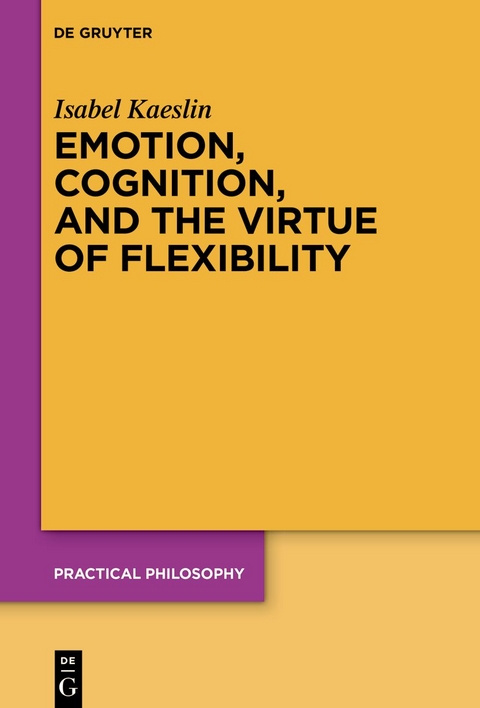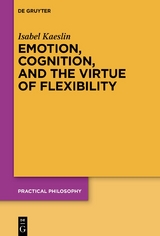Emotion, Cognition, and the Virtue of Flexibility
Seiten
Should emotions play a role in our decisions, even if they are "just feelings" and not necessarily "imbued with reason" or cognitively penetrated? The author shows that such basic feelings as aversion and attraction can be important normative guides by disrupting engrained habits and beliefs, enabling us to reconsider our ways, which is important due to the ever-changing nature of ethical demands on us. Therefore, these feelings should guide our decisions, even if they are not cognitive. This book fi lls a gap in the philosophy of emotions, ethics, and virtue epistemology.
lt;p>Isabel Kaeslin, University of Fribourg, Switzerland.
| Erscheinungsdatum | 26.09.2023 |
|---|---|
| Reihe/Serie | Practical Philosophy ; 26 |
| Zusatzinfo | 2 b/w tbl. |
| Verlagsort | Berlin/Boston |
| Sprache | englisch |
| Maße | 155 x 230 mm |
| Gewicht | 401 g |
| Themenwelt | Geisteswissenschaften ► Philosophie ► Erkenntnistheorie / Wissenschaftstheorie |
| Schlagworte | Emotionale Reaktion • emotional response • ethical decisions • ethische Entscheidungen • feeling states • gefühlszustände • Tugenden des Denkens und der Überzeugung • virtues of thinking and believing |
| ISBN-10 | 3-11-078082-8 / 3110780828 |
| ISBN-13 | 978-3-11-078082-6 / 9783110780826 |
| Zustand | Neuware |
| Informationen gemäß Produktsicherheitsverordnung (GPSR) | |
| Haben Sie eine Frage zum Produkt? |
Mehr entdecken
aus dem Bereich
aus dem Bereich
die Grundlegung der modernen Philosophie
Buch | Softcover (2023)
C.H.Beck (Verlag)
18,00 €
Buch | Softcover (2023)
Reclam, Philipp (Verlag)
7,00 €



![Was heißt Denken?. Vorlesung Wintersemester 1951/52. [Was bedeutet das alles?] - Martin Heidegger](/media/113619842)
